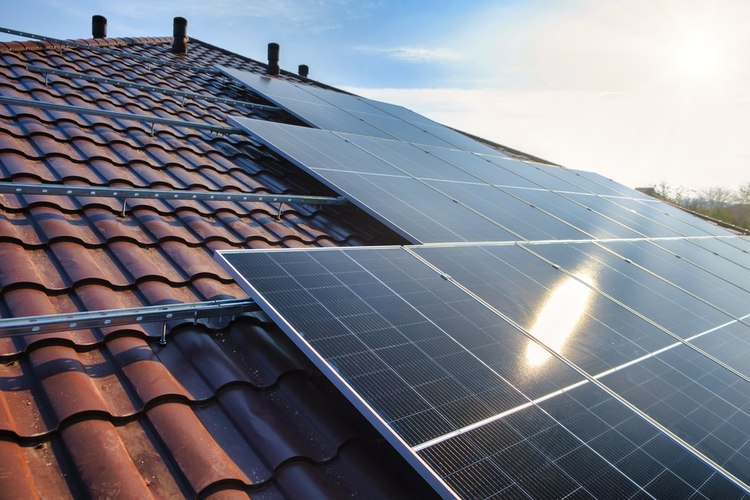Why More Homeowners Are Switching to Solar Air Conditioners for Sustainable Cooling
Rising energy costs and heatwaves are driving demand for cleaner, more cost-effective cooling options. Solar air conditioners powered by solar energy systems are helping families cut bills, reduce emissions, and stay cool using sunlight alone. Here's how this tech is changing everything.

How do solar air conditioners work?
Solar air conditioners operate by utilizing solar panels to generate electricity, which then powers the air conditioning unit. These systems can be grid-tied, meaning they can draw power from the electrical grid when solar energy is insufficient, or off-grid, relying solely on solar power and battery storage. The core components include solar photovoltaic panels, an inverter to convert DC to AC power, and a high-efficiency air conditioning unit designed to work with solar energy.
What are the environmental benefits of solar air conditioning?
One of the primary reasons homeowners are switching to solar air conditioners is their significant environmental advantages. Traditional air conditioning systems rely heavily on fossil fuels, contributing to greenhouse gas emissions and climate change. Solar air conditioners, on the other hand, harness clean, renewable energy from the sun, dramatically reducing a home’s carbon footprint. By choosing solar AC, homeowners can actively participate in the fight against climate change while enjoying cool, comfortable indoor temperatures.
Can solar air conditioners really cut energy costs?
Yes, solar air conditioners can lead to substantial energy cost savings for homeowners. While the initial investment may be higher than traditional AC units, the long-term benefits are significant. Solar AC systems can reduce or eliminate electricity bills associated with cooling, especially during peak summer months when energy demand and costs are highest. Additionally, many regions offer incentives, tax credits, and rebates for installing solar technologies, further offsetting the initial costs and accelerating the return on investment.
Are solar air conditioners effective in all climates?
Solar air conditioners can be effective in a wide range of climates, but their efficiency may vary depending on local weather patterns and solar exposure. In sunny regions like the Southwest, solar AC systems can operate at peak efficiency for much of the year. However, even in areas with less consistent sunlight, modern solar technologies and energy storage solutions make it possible to maintain cooling performance. Hybrid systems that can switch between solar and grid power ensure reliable cooling regardless of weather conditions.
What unique features do solar air conditioners offer?
Solar air conditioning systems come with several innovative features that set them apart from conventional units. Many models incorporate smart technology, allowing homeowners to monitor and control their systems remotely via smartphone apps. Some solar AC units also include adaptive cooling algorithms that optimize performance based on weather forecasts and energy production predictions. Additionally, the integration with home solar systems means that excess energy generated during cooler months can be used for other household needs or sold back to the grid, maximizing the overall value of the solar investment.
How do solar air conditioners compare to traditional AC units?
To better understand the advantages of solar air conditioners, let’s compare them to traditional AC units across several key factors:
| Feature | Solar Air Conditioners | Traditional AC Units |
|---|---|---|
| Energy Source | Solar power (with grid backup option) | Grid electricity |
| Environmental Impact | Low - uses renewable energy | Higher - relies on fossil fuels |
| Operating Costs | Low - minimal to no electricity costs | Higher - subject to rising energy prices |
| Initial Investment | Higher upfront cost | Lower upfront cost |
| Long-term Savings | Significant savings over time | Ongoing energy costs |
| Maintenance | Similar to traditional units, plus solar panel upkeep | Regular HVAC maintenance required |
| Lifespan | 15-25 years for solar components | 10-15 years on average |
| Energy Independence | Provides partial or full energy independence | Fully dependent on the electrical grid |
Prices, rates, or cost estimates mentioned in this article are based on the latest available information but may change over time. Independent research is advised before making financial decisions.
In conclusion, the shift towards solar air conditioners represents a significant trend in sustainable home cooling. As technology advances and costs continue to decrease, more homeowners are likely to embrace this eco-friendly alternative. Solar air conditioning offers a compelling combination of environmental benefits, long-term cost savings, and energy independence that aligns with the growing demand for sustainable living solutions. While the initial investment may be higher, the potential for reduced energy bills, increased home value, and a smaller carbon footprint makes solar air conditioning an attractive option for environmentally conscious homeowners looking to stay cool while making a positive impact on the planet.




